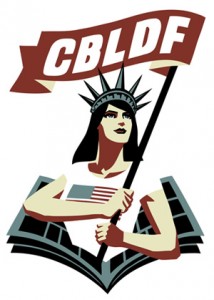 Booksellers and publishers filed a federal lawsuit today challenging a new Louisiana law that requires websites to age-verify every Internet user before providing access to non-obscene material that could be deemed harmful to any minor.
Booksellers and publishers filed a federal lawsuit today challenging a new Louisiana law that requires websites to age-verify every Internet user before providing access to non-obscene material that could be deemed harmful to any minor.
The lawsuit was brought by Media Coalition and the American Civil Liberties Union on behalf of two independent bookstores, Garden District Book Shop and Octavia Books, Future Crawfish Paper LLC, publisher of Anti-Gravity magazine, American Booksellers Association and Comic Book Legal Defense Fund.
The law, enacted as H.B. 153, requires that “any person or entity in Louisiana that publishes material harmful to minors on the Internet shall, prior to permitting access to the material, require any person attempting to access the material to electronically acknowledge and attest that the person seeking to access the material is eighteen years of age or older.” A failure to age-verify, even if no minor ever tries to access the material, is a crime that could lead to a $10,000 fine. Louisiana has a separate law that makes it a crime to lie when asked to acknowledge or attest to anything.
To comply with the law, booksellers and magazine publishers must either place an age confirmation button in front of their entire website, thereby restricting access to materials that may be appropriate for all ages, or attempt to review all of the books or magazines available at their website and place an age confirmation button in front of each individual page that might be inappropriate for any minor.
“Since we cannot possibly review the one million plus titles on our website, the law would force us to ask every customer visiting our website whether he or she is an adult,” said Britton Trice, owner of Garden District Book Shop. “That would have a strong and chilling effect on our business because it would make us appear to be an adult bookstore.”
The law violates the First Amendment rights of older minors as well as adults. Courts have held that older minors have a right to purchase books that deal with the subject of sex that are not appropriate for younger minors. However, the Louisiana law bars anyone under 18 from accessing “harmful” material. If a retailer places an age verification page at the front of a website, it would effectively bar all minors from buying all books.
“The law is a serious threat to the First Amendment rights of booksellers and our customers,” Tom Lowenburg, co-owner of Octavia Books, said. “Our job is to get customers the books they want, but this law makes it impossible by forcing us to block access to 16- and 17-year-olds who want to browse Young Adult novels and other works that may be inappropriate for younger minors.”
“The law violates the First Amendment right of booksellers and publishers because it forces them to restrict access of their customers and readers on their online stores to what is acceptable for a 12 year old,” said David Horowitz, the executive director of Media Coalition. “Parental controls are a more effective and less restrictive way for parents to limit their kids’ access to sexual material on the Internet without violating the constitutional rights of adults and older minors.”
“The Louisiana law unconstitutionally burdens bookstores and magazine publishers by limiting their rights to publish material fully protected by the First Amendment,” said Esha Bhandari, a staff attorney with the ACLU’s Speech, Privacy, and Technology Project. “It also burdens 16- and 17-year-olds from accessing material they have a constitutional right to receive.”
The lawsuit also claims that the age-verification law is unconstitutionally vague, violates the equal protection clause of the Fourteenth Amendment, the Due Process Clause of the Fifth Amendment and the Commerce Clause of the U.S. Constitution.
Plaintiffs are represented by the national ACLU, the ACLU of Louisiana, and the law firm Dentons US LLP, general counsel to Media Coalition, Inc.